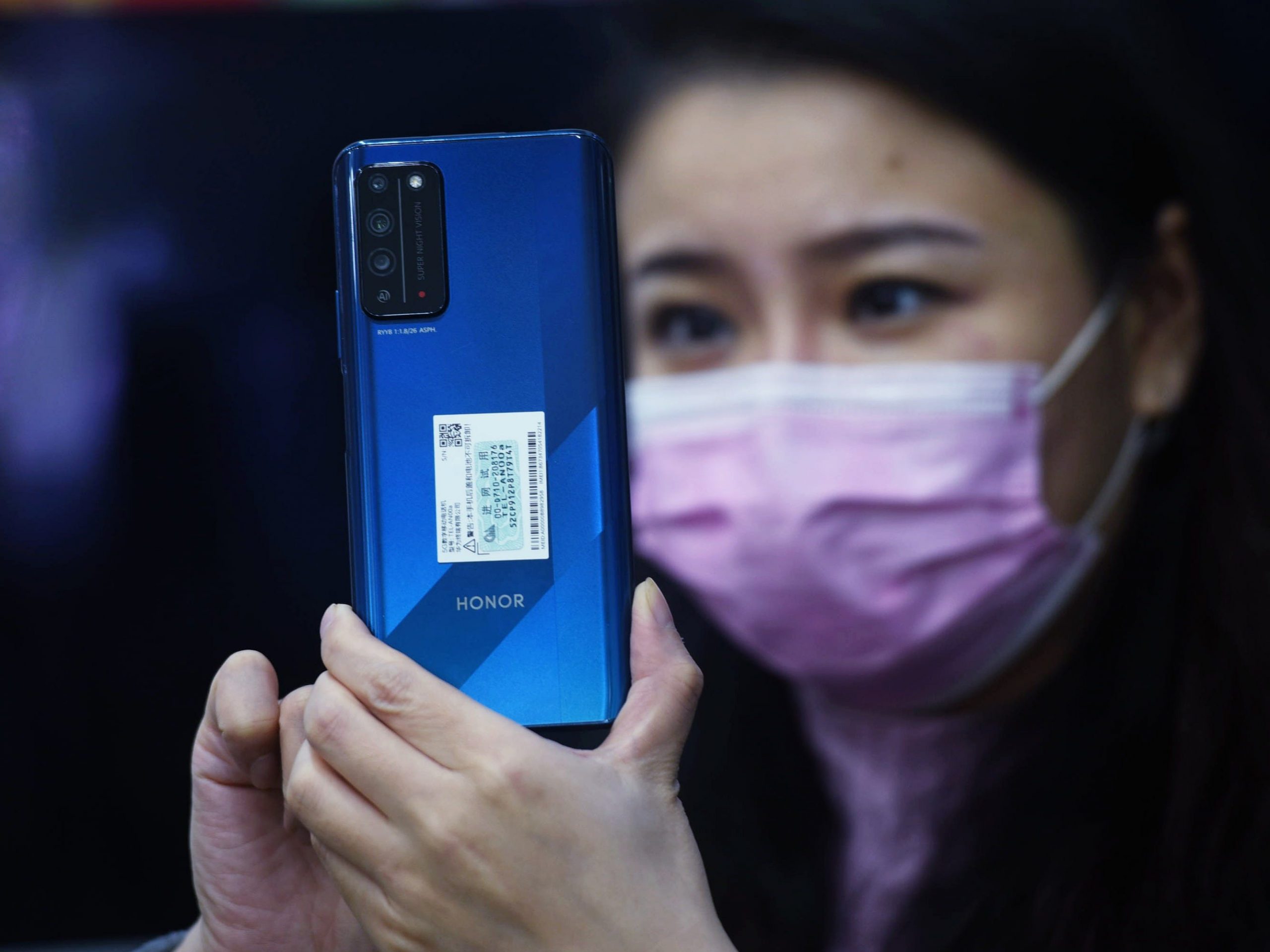
Long Wei/VCG via Getty Images
- Huawei is selling its budget smartphone brand Honor following US sanctions squeezing its business.
- Honor is being sold to a consortium of more than 30 organizations, and Huawei will hold no shares in it following the sale.
- One analyst told Reuters that Huawei had left itself room to pursue a potential buyback in future.
- Visit Business Insider’s homepage for more stories.
Huawei is selling its budget brand smartphone unit Honor to a consortium of more than 30 agents and dealers in a bid to keep it alive, the company and the consortium said on Tuesday.
The deal comes after US government sanctions have restricted supplies to the Chinese company on grounds the firm is a national security threat — which it denies.
The consortium issued a statement on Tuesday announcing the purchase, which will be made via a new company, Shenzhen Zhixin New Information Technology.
Huawei will not hold any shares in the new Honor company after the sale, the statement said.
In Huawei’s statement, the company said its consumer business has been under “tremendous pressure” due to the “persistent unavailability of technical elements” for its phone business.
"This move has been made by Honor's industry chain to ensure its own survival," Huawei said.
The change of ownership will not impact Honor's development direction, both statements said.
No figure for the deal was given.
Sources with knowledge of the matter say US government restrictions have forced the world's second-biggest smartphone maker — after South Korea's Samsung — to focus on high-end handsets and corporate-oriented business.
One source said on Tuesday the US government will have no reason to apply sanctions to Honor after it separates from Huawei.
Honor sells its smartphone in China, Southeast Asia and Europe, and ships 70 million units annually according to Huawei.
Honor will look for more investment partners in the future, with the possibility of an eventual listing, the source said.
Reuters reported earlier this month that Huawei was in talks to sell Honor in a 100 billion yuan ($15.2 billion) deal to a consortium led by handset distributor Digital China and the Shenzhen government.
Huawei has said its higher-end smartphone line is also under threat from the US sanctions, with the head of its consumer business saying in August that it would be unable to continue making the Kirin chips that power its premium models.
Offloading Honor will give Huawei some "breathing room" on the sourcing side for its premium business while it focuses on developing its proprietary HarmonyOS for smartphones, said Nicole Peng, vice president of mobility at industry research consultancy Canalys.
The sale will help to sustain the brand, while allowing the possibility of buying Honor back some day, said Will Wong, an analyst at IDC.
"It will be easier for Huawei to make a potential buyback in the future from this consortium, which might not be so easy if they sell it to other smartphone or electronics makers," he said.

